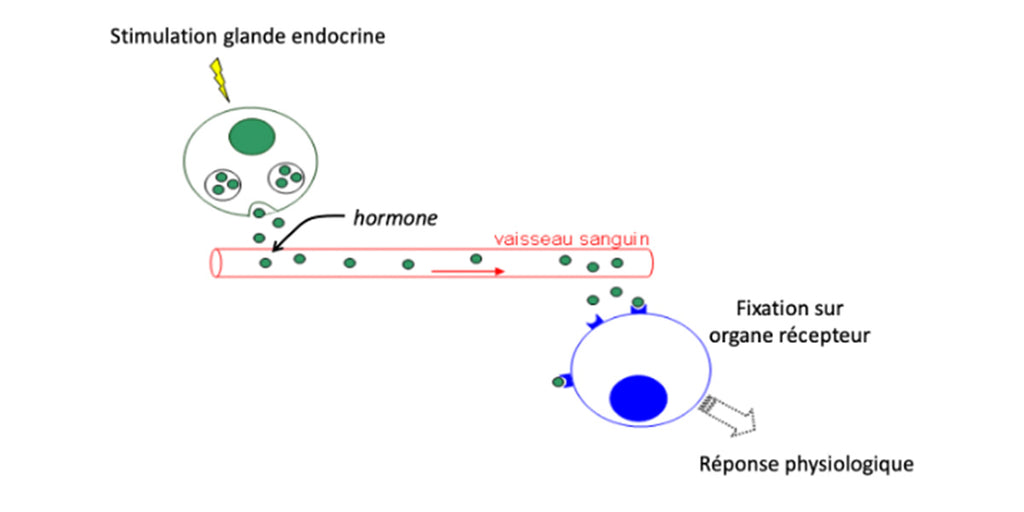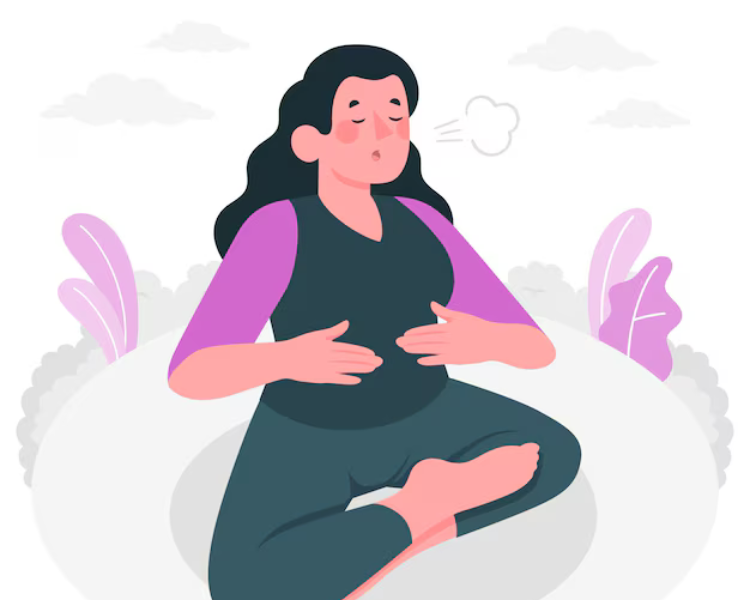Hormones act in our body as real messengers…
These are chemicals produced naturally in our body by special cells, the endocrine cells. Once synthesized, the hormones are then released into the blood which will allow them to circulate to the organ on which they must act.

What are hormones used for?
Hormones have a real communication role. They leave the endocrine cell that produced them and, thanks to the blood that carries them, will reach the target organ to which they must transmit their message. They will thus be able to modify the behavior and functioning of the different organs, each hormone inducing observable and/or physically perceptible effects.
Hormones are involved in many processes, such as digestion, but also the wakefulness/wakefulness rhythm, growth and reproduction.
But finally, if today the roles of each hormone have been perfectly described individually, we are only beginning to become aware of the importance of the balance between all our hormones in order to maintain vital harmony. Also, hormones must no longer be considered in isolation from each other but in their entirety.
It is the balance between insulin which allows sugar to be stored and glucagon which releases it for use which will be at play in digestion.
It is the balance between melatonin which causes sleep and cortisol which induces wakefulness which will allow you to have quality rest.
It is the balance between the sex hormones estrogen, testosterone and progesterone that ensures a peaceful menstrual cycle as well as the proper functioning of reproduction and sexual development.
Where do our hormones come from?
It all starts on the plate. Because it is the transformation of the nutrients we ingest through food that will allow us to correctly produce our hormones.
Hippocrates was also the first to lay the foundations of nutritional medicine by emphasizing the importance of diet for health.
We know that amino acids such as tyrosine or tryptophan, which are found in particular in foods rich in protein (animal or vegetable), are essential for the synthesis of our thyroid hormones, dopamine, adrenaline, serotonin and melatonin.
And what about our sex hormones?
What many people don't know... is that it all starts with cholesterol!
Although we have been avoiding it for several decades, blamed for many diseases, particularly cardiovascular diseases, and tried to eradicate it from all plates, cholesterol is ultimately the first link in the chain of so-called steroid hormones to which our precious sex hormones belong.
While ultra-processed fatty foods should indeed be avoided for a healthy diet, let's keep in mind that good quality fatty acids (cold-extracted and uncooked vegetable oils, oily fish rich in omega 3, eggs and dairy products) consumed in moderation are real allies for living in harmony with our hormones.
What happens to our hormones?
Once their mission is accomplished, our hormones are eliminated by the kidneys and the liver which are our 2 main emunctories, that is to say our organs intended for the elimination of waste.
Hormones made from amino acids and proteins are water soluble, so they can be excreted directly through urine.
On the other hand, hormones derived from cholesterol must be transformed by the liver before being eliminated. This step, called detoxification by the liver, is essential for sex hormones because its proper functioning will determine the risk, or not, of accumulating toxic derivatives of these hormones.
Spotlight on sex hormones
As their name suggests, it is the sex hormones that will determine our sexual characteristics.
In women, it is our estrogen and progesterone that are at the origin of our femininity, our curves and our sometimes cyclical moods.
But what we don't always know is that we also need testosterone. It plays a key role in maintaining our hormonal harmony!
Estrogens
These are the hormones of femininity par excellence.
Secreted in the first part of the menstrual cycle, that is to say after menstruation and up until the period of ovulation, estrogens play a key role in reproduction, in particular by allowing the uterine lining to fill with blood to prepare for a possible pregnancy and by ensuring libido in the period preceding ovulation.

Progesterone
Secreted in the second part of the cycle, progesterone promotes the implantation of the egg if it is fertilized, as well as its implantation in the uterine lining. It thus plays a crucial role in ensuring a hormonal environment conducive to the onset of pregnancy.
Testosterone
It would be reductive to limit testosterone to its role of stimulating the libido.
Here again, it's all about balance and we now know that the balance of estrogen with testosterone plays a key role in sexual function of course, but also in the quality of the skin, metabolic function, muscles and even the cardiovascular system.




